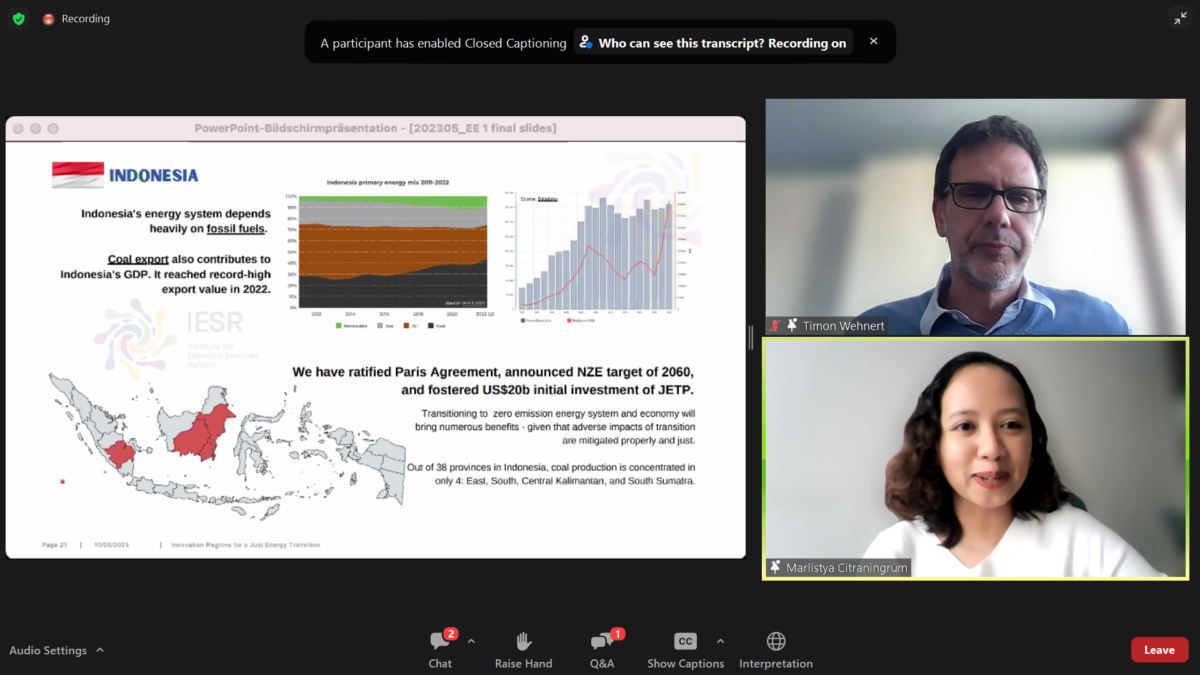Jakarta, 10 May 2023 – the global effort to move away from fossil-based power resources will lead to a transition away from coal. This transition not only brings a drastic change to coal production, but also the livelihoods and economic activity in the coal producing regions.
Srestha Banerjee, director of the Just Transition program iForest India, during the webinar called “The Just Transition Toolbox for Coal Regions — Knowledge needs in the South-East-Asian context” emphasized that the transition issue is more of a political issue rather than a technical one.
“India has appointed a task force to design a people centric solution for coal transition. Besides digging up community needs through dialogue and discussion, we need an example of good transition practices to boost people’s confidence,” Srestha explained.
Indonesia, the biggest coal exporter, experiences uncertainties in the coal transition supporting the just energy transition agenda. As the global price of coal soared last year, Indonesia faced a dilemma of whether to reduce coal production or stay in business as usual.
Marlistya Citraningrum, program manager of Sustainable Energy Access, Institute for Essential Services Reform said that since last year, the Indonesian government has started to rely more on renewable energy in the PLN electricity planning, yet the implementation still faces challenges.
“Leaving coal altogether is seen as a much more difficult option as it directly impacts the economic situation and income of the region,” she said.
Citra, as she has always been called, added that during the planning phase, the government needs to understand the context of the transitions and its impact on the social economic aspect. Active listening is necessary to gain a more comprehensive understanding.
Chalie Charoenlarpnopparut, associate professor, Sirindhorn International Institute of Technology, Thammasat University Thailand agreed that dialogue will be the key to bridging the gap between the needs to reach the emission reduction target and the social economic impact of leaving coal.
“We need to tell the communities that the disruption is going to happen no matter what, and we need to be prepared or else we will experience the more negative impact of the coal transition,” Charlie said.
Realizing that energy transition and coal transition in particular is a technically heavy and technocratic issue, gender mainstreaming during the process becomes more noteworthy. Chalie added that in Thailand, women’s involvement in the transition has started to be seen.
“Women have more of a sense of sustainability, so they are more eager to be involved during some action. While men are more involved in the research and academic side of the transition,” he said.

